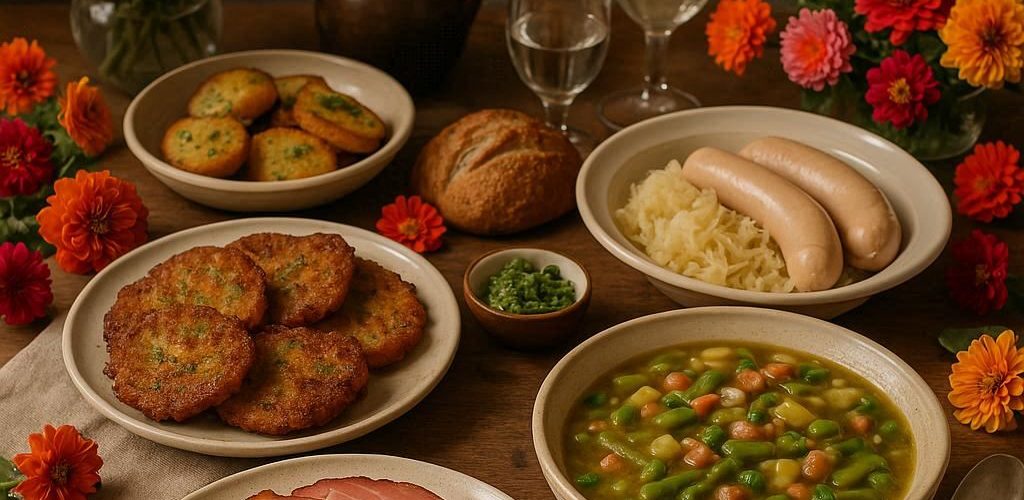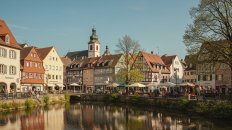Luxembourg may be a small nation nestled between Belgium, France, and Germany, but its food scene is as vibrant and diverse as its cultural landscape. Drawing influences from its neighboring countries, Luxembourg’s cuisine is a delightful amalgamation of flavors, techniques, and traditions that reflect its rich history and multicultural identity. For anyone looking to explore Luxembourg food, this guide will provide an overview of its most iconic dishes, regional specialties, and culinary experiences.
Traditional Dishes
One cannot discuss Luxembourgish cuisine without mentioning Judd mat Gaardebounen. This is the country’s national dish, which consists of smoked collar of pork served with broad beans and potatoes. This hearty meal showcases the love Luxembourgers have for robust flavors and comforting ingredients. It’s often seasoned with hints of garlic and onions, providing a rustic charm that is best enjoyed in local bistros and family-run establishments.
Another dish worth trying is Gromperekichelcher, a popular street food staple, especially during festivals and markets. These delicious potato fritters, made with grated potatoes, onions, and spices, are deep-fried to perfection. Often served with a side of applesauce, they are a must-try for anyone visiting during the festive season or local fairs.
For those with a sweet tooth, the Tartes and Gâteau varieties are plentiful in Luxembourg. Tarte aux Mirabelles, a plum tart made with sweet mirabelle plums, is particularly famous and captures the essence of Luxembourg’s fruit-based desserts. It’s a delightful treat often enjoyed with coffee or as a dessert after a meal.
Culinary Influences
The cuisine of Luxembourg is heavily influenced by its neighboring countries. French cuisine has shaped the way Luxembourgers approach cooking, especially in terms of presentation and technique. This is evident in dishes like Bouneschlupp, a traditional bean soup enriched with various seasonal vegetables, often accompanied by a slice of crusty bread. Similarly, the German influence is seen in the use of hearty ingredients and the popularity of sausages and charcuterie boards that make for great starters.
Luxembourg has also embraced the trend of local sourcing and organic products. Many restaurants today proudly offer dishes made with ingredients from local farmers and purveyors. This commitment to freshness not only supports the local economy but also guarantees a high standard of quality and flavor.
Food Markets and Festivals
To truly experience Luxembourg’s food culture, one must visit its local markets such as the Liège Market, bustling with vendors selling artisan bread, cheeses, cured meats, and fresh produce. The vibrant atmosphere allows visitors to taste a variety of local delights, making it a perfect spot for food lovers.
Moreover, food festivals throughout the year celebrate Luxembourg’s culinary traditions. Events like the Bamhausfest and Fête de la Musique often feature local dishes paired with music and entertainment, providing an engaging way to immerse oneself in the country’s food scene.
Conclusion
Exploring Luxembourg’s food is an adventure filled with heartwarming flavors and cultural richness. Whether venturing into traditional restaurants or enjoying street food at a festival, the culinary offerings of this small but diverse nation promise to delight any food enthusiast. As you indulge in the local fare, you’ll not only satisfy your taste buds but also experience the warm hospitality that Luxembourg is known for. So pack your bags, bring your appetite, and get ready to uncover the delicious world of Luxembourg food!




Add comment